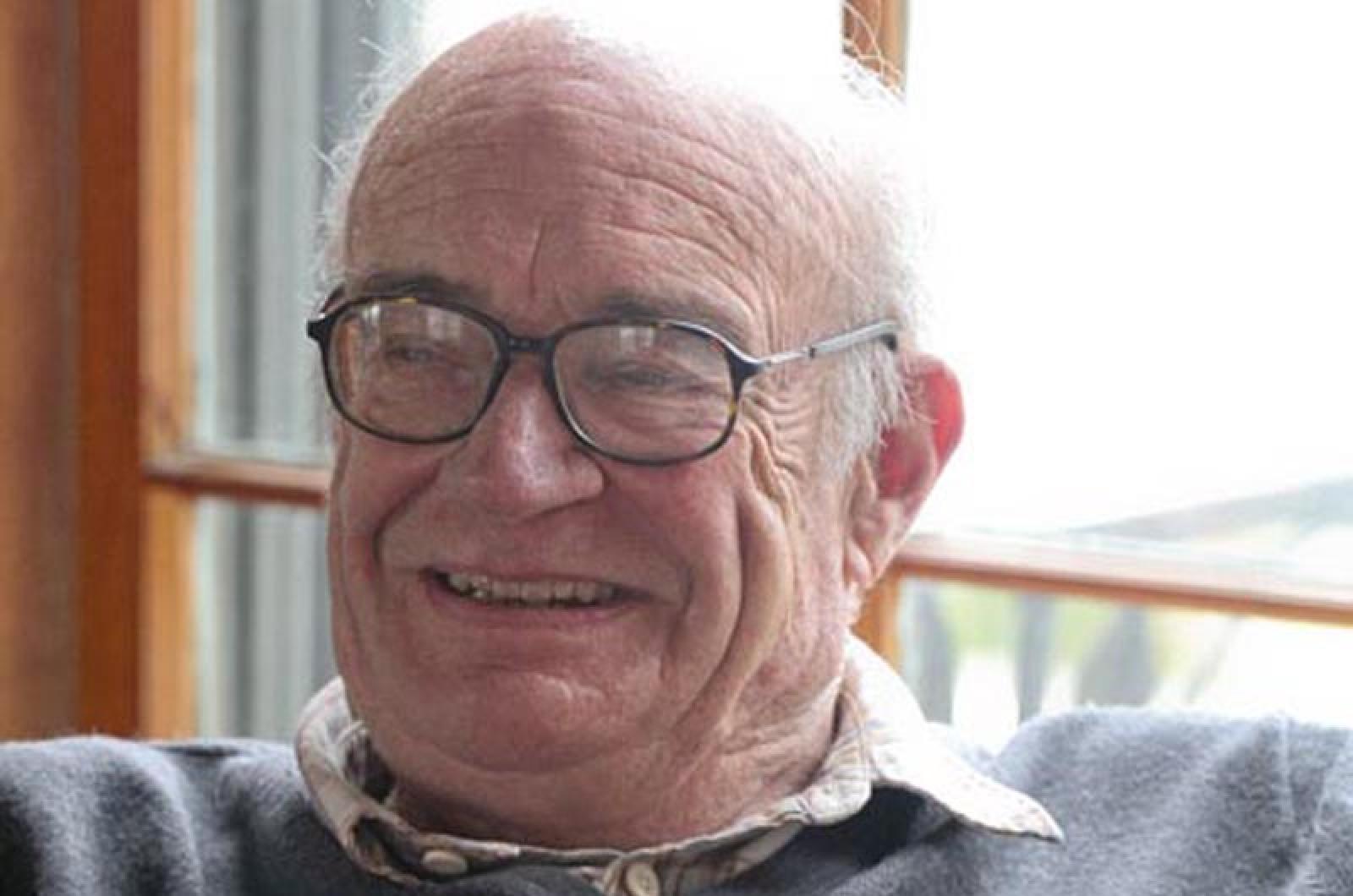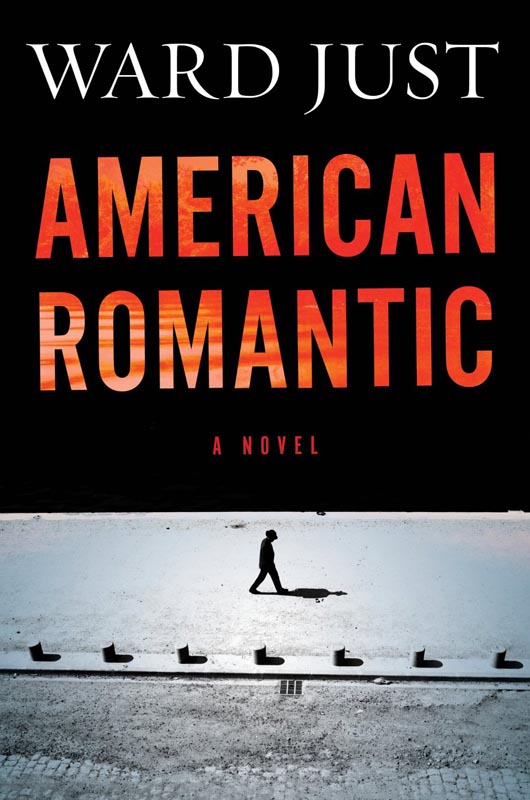The following is excerpted from a new novel by Ward Just called American Romantic, published by Houghton Mifflin Harcourt.
These events happened a while back, when the war was not quite a war, more a prelude to a war. Their army was called a guerrilla force. Our army was called a Military Assistance Command. The war is the least of the story that follows. It cast its own shadow, and to live within it was to live within a sphere of strained silence and self-reliance.
Foreign service office Harry Sanders was visiting river villages in one of the southern provinces. He traveled by boat with a helmsman and a bodyguard, a lethargic army sergeant who sat in the stern, a carbine in his lap, his eyes invisible behind army-issue sunglasses. Foliage along the edges of the river was thick and, where the channel narrowed, so close that the leaves touched the boat’s hull. The helmsman throttled back, explaining that he was disoriented by the river water, dead still and reflective as a mirror. Stare at it long enough and it was hard to tell up from down.
The Americans were there to inspect projects in five villages, a schoolhouse in one, wells in two others, a guardhouse in the fourth, a clinic in the fifth. The clinic was Harry’s particular interest, certainly the most troubling, completed only the week before. Construction delays were chronic. The idea was to verify that the work had been done and that the projects were fully operational and useful to the inhabitants. There were always complaints and Harry was there to listen to the complaints — the leaking roofs, the lack of proper medicines, the strange noise the well made. In each village the headman would take Harry to the project, whatever it was, and explain the difficulty, and Harry wrote the complaints in a notebook and promised action, though not right away. The sergeant always stood a little apart, holding his carbine while he scrutinized the surroundings. The first three villages were empty of people, always a bad sign. Asked about that, the headman would say the people were in the fields, harvesting. But they were nowhere in sight. The villages were the soul of silence. Nothing moved in the damp heat. Even the insects had disappeared. Asked about the security situation, the headman smiled vaguely and said there had been no change. The villages were exposed. Why, only the other day a platoon of the enemy had arrived at dusk and harangued them for an hour or more. There were threats. Finally they took what they wanted and departed. What did they want? They wanted food and volunteers and went away with the food and three teenage boys. The headman was small of stature, middle-aged, with a wispy beard that fell to his chest. His eyes were hooded and he never looked directly at Harry.
We should go now, the sergeant said.
What do you see?
Nothing. That’s the trouble.
Harry thanked the headman and gave him some money and he and the sergeant walked slowly down the path to the boat. When Harry looked back, the headman had vanished. He wondered how they did it, disappear into thin air like Ali Baba. He thought that somehow they dwelled in a parallel universe, one of their own making. The American presence covered them the way a shroud covered a grave. No hint of the shape of things beneath the shroud. The shroud was opaque. Anything could be under it, a corpse or a bomb or a pygmy elephant or a naked woman. And if the shroud were suddenly ripped away — well, perhaps one would find nothing at all. Harry supposed that someday a native of the region would write a poem describing the parallel universe, its weather and dimensions, its values, what it loved and what it loathed, its aspirations. Why were foreigners hated so? Not only Americans but everyone else. And the poem would be translated into English filled with obscure allusions, dry as dust but something seething beneath the surface.
The motored on to Village Number Four, mostly unoccupied, though the word that came to mind was “abandoned.” The guardhouse looked unoccupied. The headman stood impassively to greet him, two small children hanging on his legs. Harry took the presence of the children as a hopeful sign. They were the only hopeful sign, and as he looked about him at the stilted houses and the gray concrete guardhouse he thought that a splash of color would improve the look of things. He often summoned optimistic images when in the sullen countryside and what he conjured now was a newspaper kiosk, the sort of cheerful amenity found on Paris boulevards. Perhaps a café with red awnings and a white-aproned waiter balancing a drinks tray on the tips of his fingers. Somewhere nearby music floated from an open window, French cabaret, horns and violins and Piaf’s raw throat. Girls in short skirts, a boulevardier walking his dog . . . The mirage was unsuccessful. Perhaps next time, something more durable, the Hoover Dam or a Mayan pyramid. Stonehenge. Harry shook hands with the headman, who avoided looking him in the eye. They stood a moment talking of the security situation, the weather, his family. The weather was normal, the security situation in flux, his wife was ill. Harry said, Your village appears deserted. Where is everyone? The headman moved his arms as if to indicate they were elsewhere, in the fields, round and about, parts unknown.
Harry nodded as if he sympathized. He always wondered how the villagers got on from day to day. He had difficulty imagining ordinary life in this settlement that looked so sour and bereft and fantastic at the same time — as if somewhere in the knotted jungle was a great golden temple with flourishing gardens and still ponds. The stilted houses seemed to float unmoored above the earth. There were just six houses and the guardhouse. Of course these were observations from Western eyes, fundamentally doubtful. Certainly life in this village was as dense as life anywhere, subtle rules and ordinances, unusual understandings, civic mysteries, all of it crowded by the ghosts of ancestors. It was said that native people wanted what everyone everywhere wanted, a roof over their heads, three meals a day, a doctor’s care when they were sick, a more prosperous life generally; the rule of law would come in there somewhere. Surely all this was true but there was much more besides, a way of life that was in some measure unique, a life that honored the past and spoke to the spirit. In any case, in this village intruders were tolerated but not welcome. There had been many intruders over the centuries and what they had brought was grief. Harry and the headman walked to the guardhouse, the headman silent. He had exhausted his English and so they stood mute before the building. This was yet another difficulty. The language was complex and not easily mastered, a tongue of indirection and metaphor, untimely laughter as punctuation. Perhaps that was how remote societies protected themselves, presenting a masked face to the world, a face so blank that anything could be read into it. Guardhouse roof leaks, the headman said.
Ah, Harry said.
Three leaks.
Three?
I have put pots on the floor.
For the leaks?
Yes, for the leaks.
Harry looked in and saw the pots in the corner, and where the washstand was meant to be there was a television set, its antenna coiled uselessly beside it.
I’ll see to the leaks, Harry said. No prisoners, I see.
We are a peaceable village, the headman said.
All this time, Sergeant Orono had been looking at his watch while he snapped gum. Harry smiled at the headman and the headman smiled back.
They returned to the boat and continued downriver to the fifth village, the one with the clinic that lacked medicine and a competent doctor. The river meandered, its slow current weary in the afternoon heat. The river widened and the sergeant seemed to relax. Then he lit a cigarette, all the while staring into the vegetation, reeds and light green bushes. He stared now to port, now to starboard, watching for movement, but there was no movement nor any breath of air. No birds. The helmsman suddenly throttled back. He nudged Harry, took a deep breath, and pointed at his nose. The air was different. Decaying vegetation and the silty smell of water yielded to something else.
Smoke, Sergeant Orono said.
Ahead, the helmsman said.
Our village, the sergeant said. This is not good news. We should abort.
Full ahead, Harry said to the helmsman.
The goddamn village is burning, the sergeant said.
We will keep on, Harry said.
You are not armed, the sergeant said.
Nevertheless, Harry said, I have orders.








Comments (1)
Comments
Comment policy »